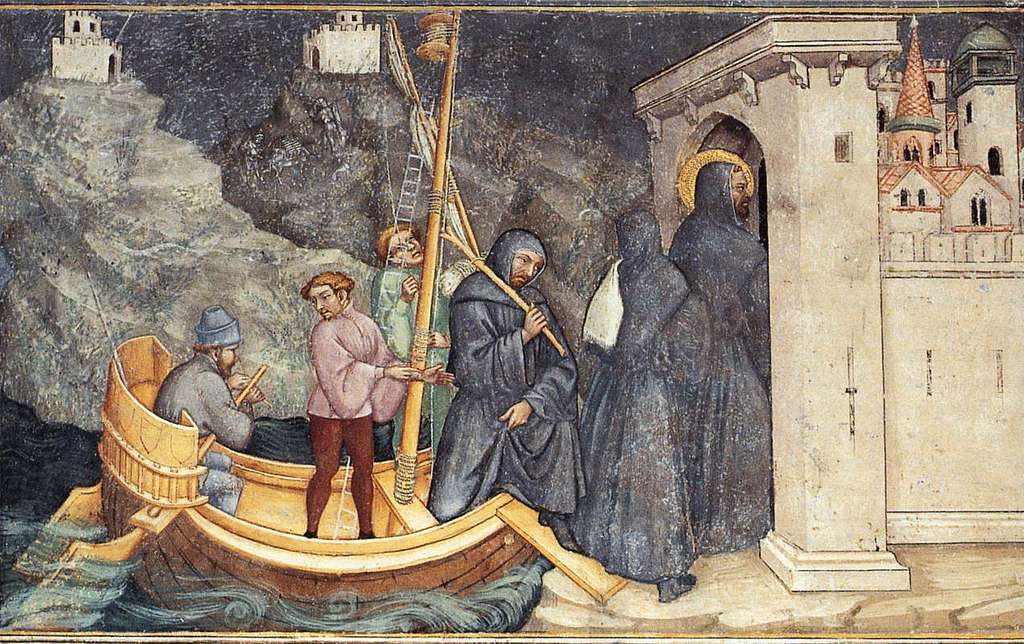PUNIC CHURCH COLLECTION
Before the Arab conquest in the 7th century, Carthage and its surrounding areas in North Africa were central to the development of early Christianity. The region, located in modern-day Tunisia, was one of the most important centers of Christian life and theological thought in the Roman Empire. The church in Carthage not only played a significant role in the spread of Christianity across North Africa but also produced some of the most influential Christian thinkers and leaders of the early Church. Christianity began to spread in Carthage during the 2nd and 3rd centuries AD, following the Roman Empire’s policy of religious tolerance. Carthage was a bustling port city and a center of Roman power in North Africa, providing a fertile ground for the growth of Christian communities. As Christianity grew in influence, it eventually became a dominant force in the region. By the 3rd century, Carthage was home to a thriving Christian community, with an established church hierarchy, including bishops, priests, and deacons. The church in Carthage was highly organized, with dioceses spread across the surrounding regions of North Africa. The bishop of Carthage was considered the most important Christian leader in the region, and Carthage became the center for ecclesiastical authority in the Roman province of Africa. The church’s hierarchy included not only bishops but also presbyters (priests), deacons, and lay leaders who helped administer and organize the growing Christian communities. Christianity in Carthage was not without its challenges, especially during periods of Roman persecution. The Church endured several waves of persecution, particularly under emperors like Decius and Diocletian. During these times, many Carthaginian Christians were martyred, and some of the most notable figures, such as Cyprian, became martyrs. Despite the persecution, the church in Carthage continued to grow and strengthen, and by the early 4th century, Christianity was well-established in the region.
One of the most significant events in the history of the Carthaginian church was the Donatist controversy. After the persecution of Christians under Diocletian, a group of Christians in North Africa, led by Donatus, argued that bishops who had surrendered sacred scriptures during the persecution were no longer legitimate and that only those who had remained faithful during the persecution could lead the Church. This schism divided the Church in Carthage and its surrounding areas, leading to a bitter theological and political conflict. The Donatist movement persisted for centuries, causing divisions that affected the region’s Christian unity. In the 5th and 6th centuries, as the Western Roman Empire began to decline, the region of North Africa faced political instability, which had an impact on the Church in Carthage. The Vandal Kingdom, which conquered North Africa in the 430s, was initially Arian Christian, and the Vandals persecuted the Nicene Christians who had been dominant in Carthage. The region was later reconquered by the Byzantine Empire in the 6th century, but the Christian church faced new challenges, particularly with the rise of Islam in the 7th century. By the time of the Arab conquest in the mid-7th century, the once-thriving Christian church in Carthage and North Africa had begun to decline. The spread of Islam brought new cultural and religious influences to the region, and Christianity gradually receded as the dominant faith. Many Christian communities converted to Islam, and Christian presence in the region dwindled significantly. While the Punic clergy was a significant force within the early church, and a Latin speaking one at that, its influence was short lived. In 698 AD Carthage fell to the armies of the Arab Caliphate, and subsequently the Punic church began to fade into history. There is some account of its survival well into the medieval period during a very brief Norman reconquest of Africa.
The church in Carthage was a powerful and influential force in the development of early Christianity in North Africa. It produced some of the most important theological thinkers in Christian history and played a pivotal role in the establishment of Christian communities across the region. Despite facing periods of persecution and internal division, the church in Carthage continued to thrive until the Arab conquest. The decline of Christianity in North Africa marked the end of an era for the church in Carthage, but its legacy lives on through its theological contributions and the historical influence it had on Christianity throughout the Mediterranean world and well into the medieval period.

